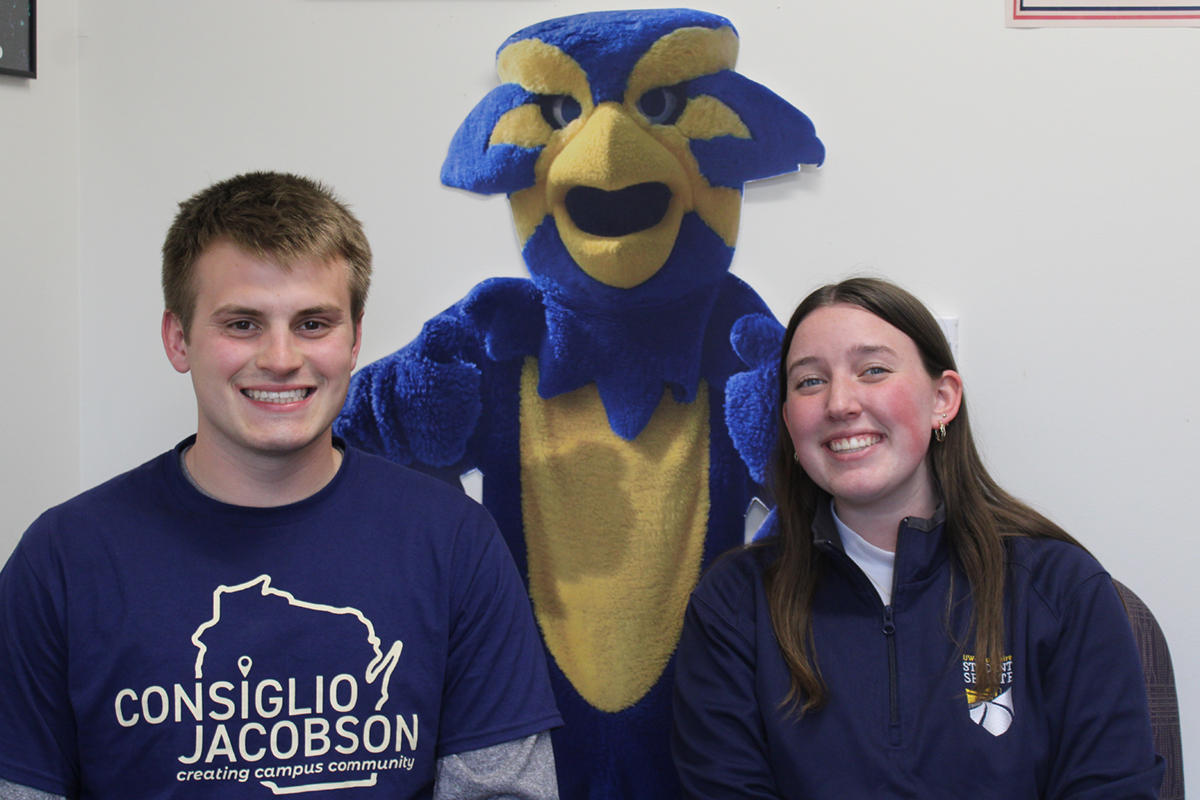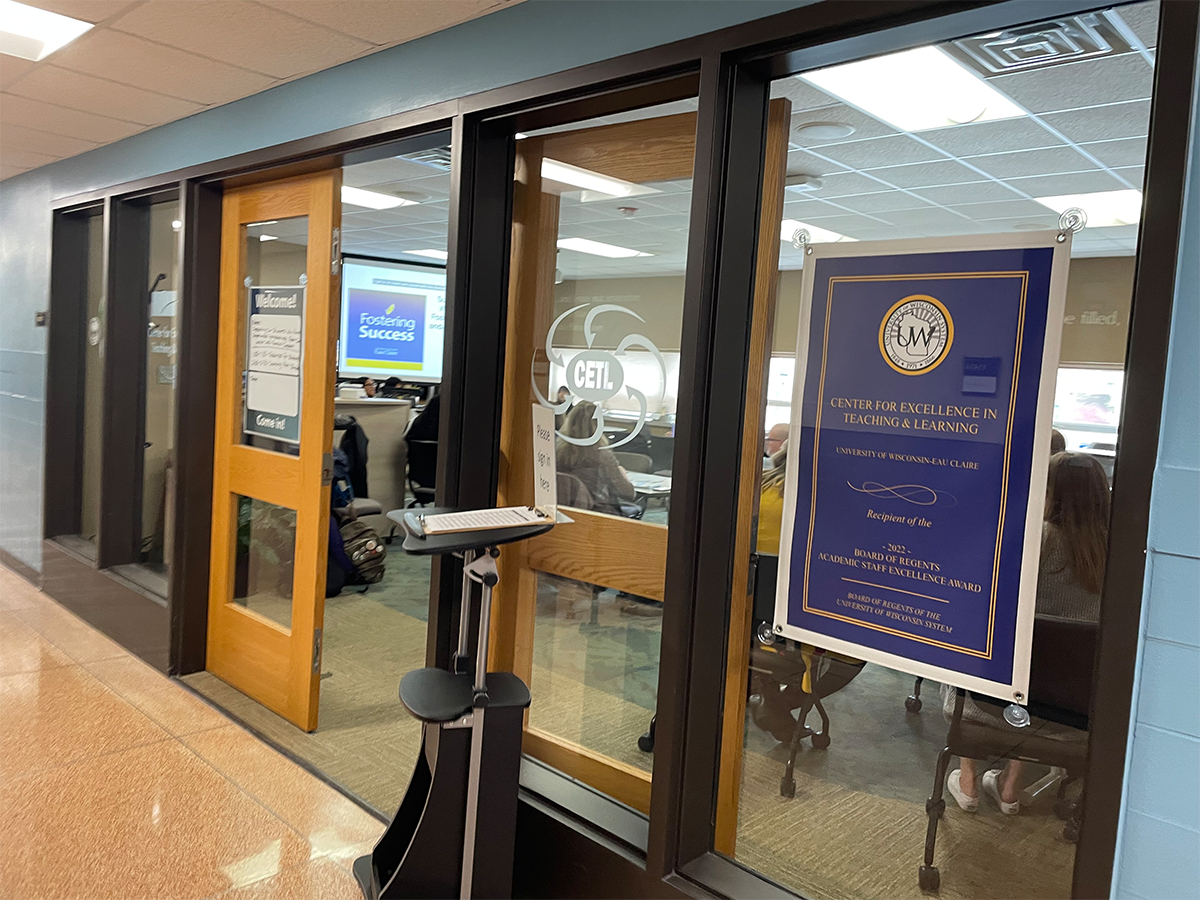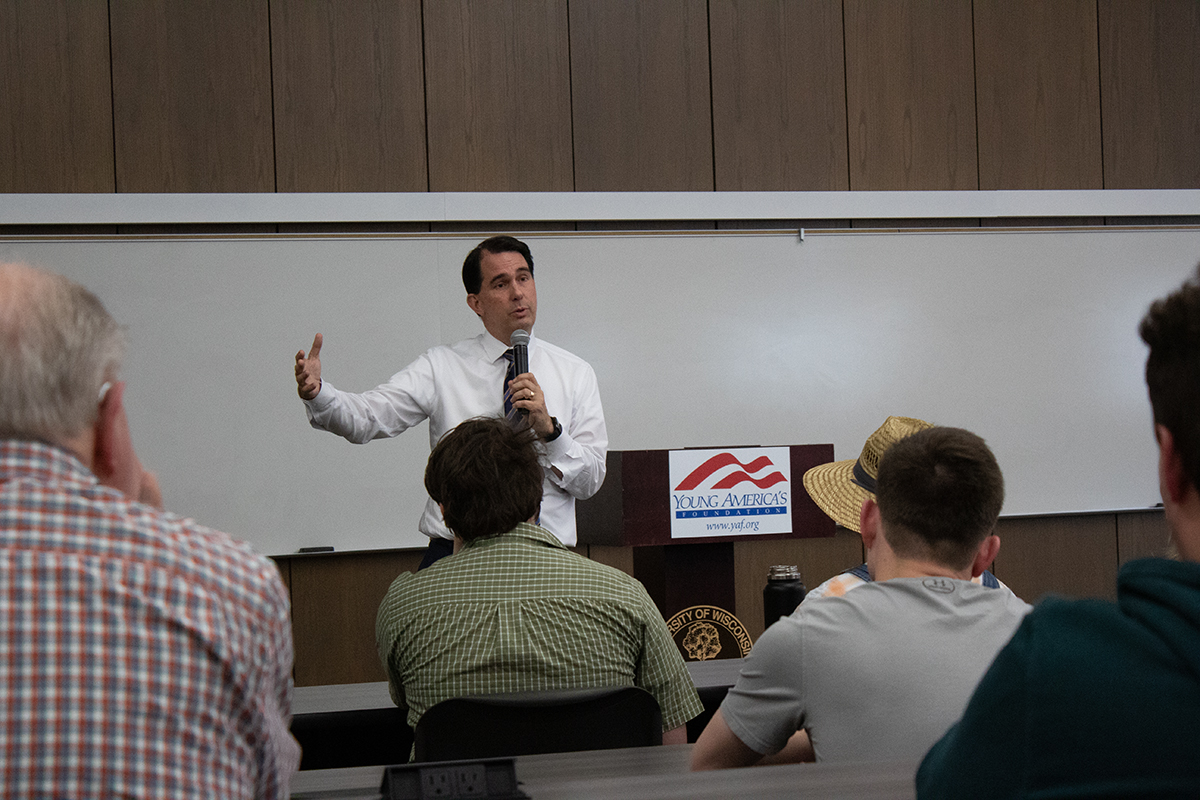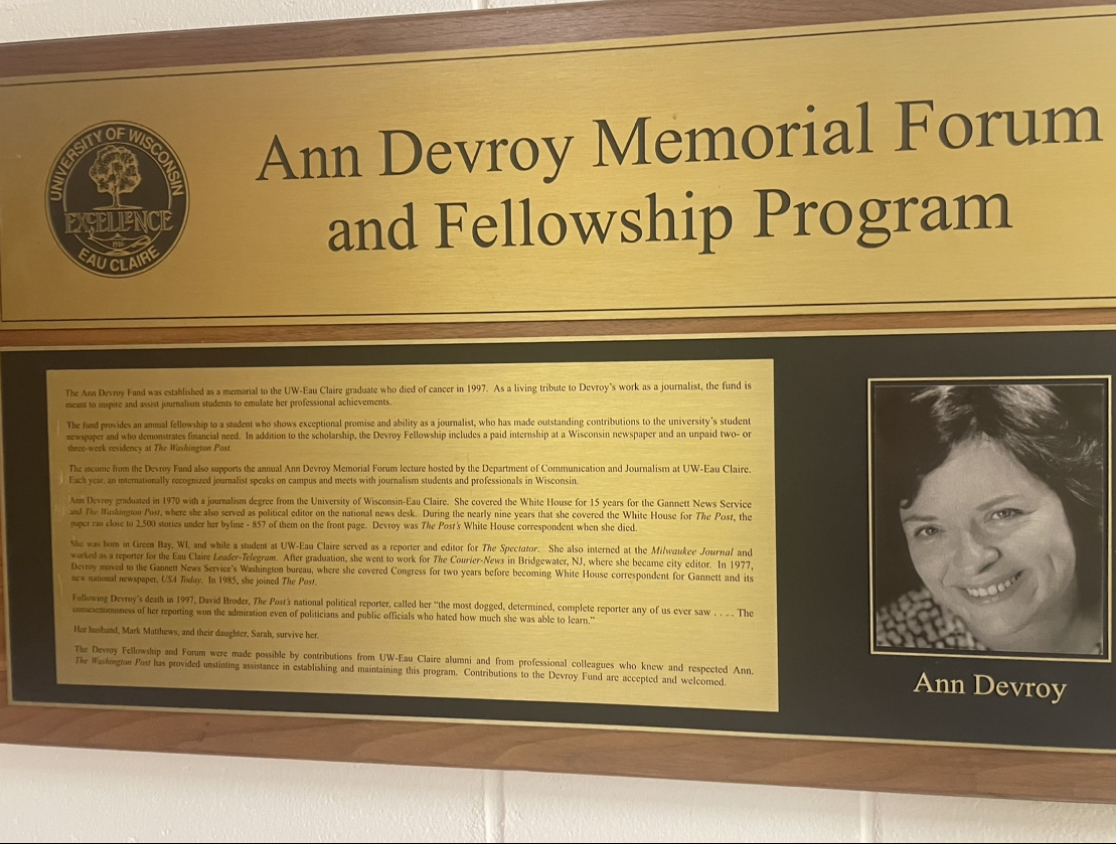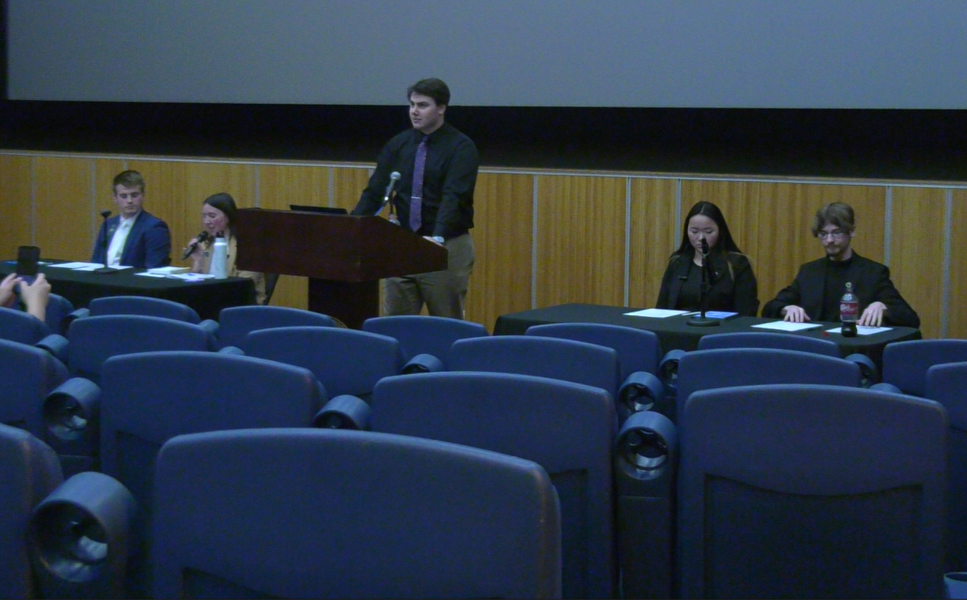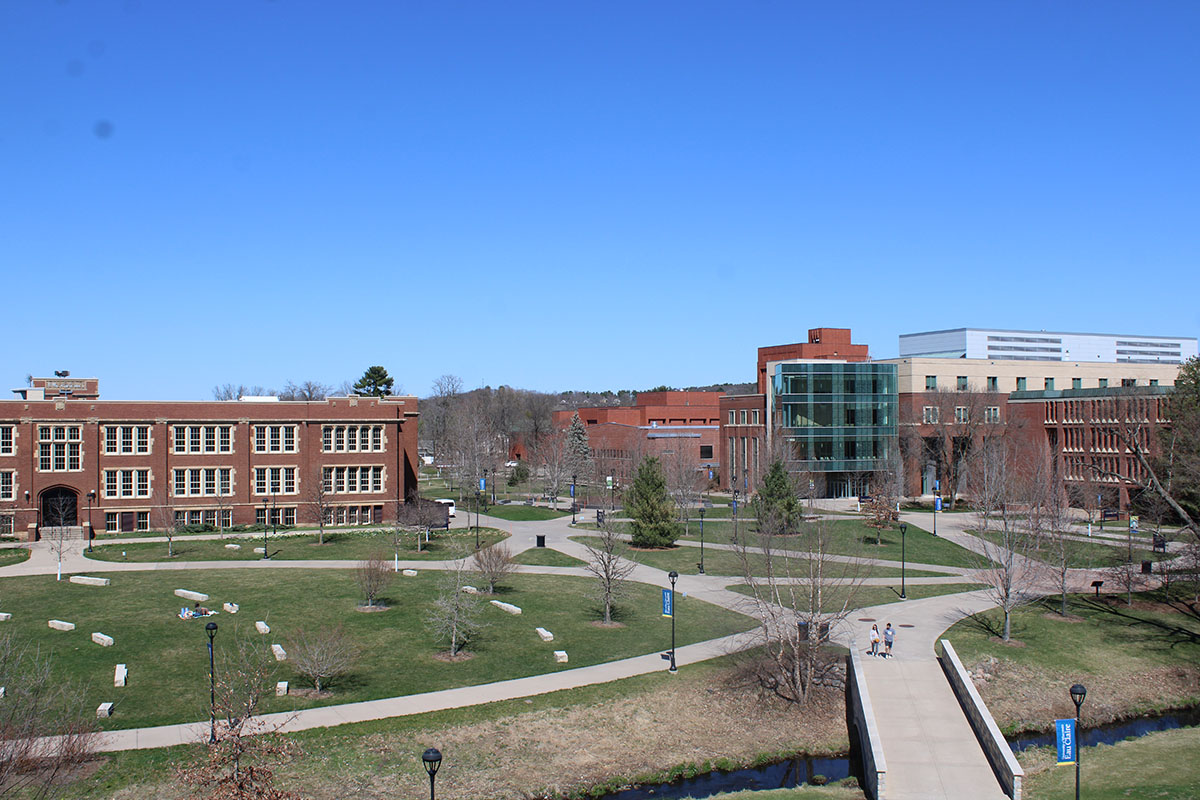Before most students wake up on and off campus, 45 students are already up and reporting to campus
for duty.
These students come from UW-Eau Claire’s local Army Reserve Officer Training Corps program, with student cadets coming from all grade levels and a large number of majors. Four days of the week, the cadets are up at 6:30 a.m. working on physical fitness activities, leadership and classroom lab
activities.
The campus’ program is currently a “sister school” with UW-Stout, where the ROTC program began years ago. The battalion now includes UW-Stout, UW-Eau Claire and UW-River Falls, Cadet Company Commander Jack Dillow said.
Staff Sgt. Michael Geiger described ROTC at its most basic level as an officer-producing program for the Army, Army Reserve and Army National Guard.
“What we’re doing is introducing students to military concepts and leadership,” he said. “If they want to pursue the program, they can (graduate from Eau Claire) and be in the Army as a second lieutenant.”
Dillow added that there has been a demand for the military in the last few years.
“The thing about it is that we’re fighting two wars and there’s a need for officers — (ROTC) is a major way of producing officers,” he said. “It’s something people really want to do.”
A major benefit of being in the ROTC program, should one choose to sign a contract with the Army or not, is the leadership portion, Geiger said.
“We practice leadership skills (such as time management),” he said. “… but no matter what career you pick, you’ll get pulled out of your comfort zone into situations where you will need
to lead.”
Dillow said the biggest benefit for him so far is “being confident enough to get in front of a group and be a genuine leader.” Dillow, a senior, is contracted to serve in the Army on active duty when he graduates
this year.
“I’ve never been on active duty, but I’ll be expected to lead a platoon and solve problems (when I start),”
he said.
Eau Claire’s ROTC program experienced a growth spurt over the last few years — in the last year alone, Geiger said the program jumped from 17 to 46 cadets enrolled this fall.
Captain Bradley Frahm, an assistant professor of military science, said that there can be apprehension when asking about the ROTC program and the commitment required to the Army. He had spoken to a student who was interested, but then their mom said wasn’t a good idea.
“There’s no commitment for first two years — the only commitments are contracted (starting your junior year),””
he said.
But before any commitment to the Army, in the first two years the ROTC can be made into “whatever you want it,” Dillow said. “Anyone in college can come and take it and learn valuable leadership skills.”
Besides an early start to the cadet’s day with physical activity four days a week and education in the classroom, the ROTC program strives to do work outside
of campus.
“It’s not for just joining military,” Frahm said. “Outside of the school we have social events, fundraisers for local businesses (including the American Legion), color guard … we are looking for that community
exposure.”
Frahm said that seeing cadets develop from that freshman level as they gain experience and confidence is a highlight of working with the ROTC program.
“You see them get better and learn from previous experiences, and just seeing the motivation (is impressive),” he said.
At the end of the cadets’ and instructors’ busy days, however, they return back into the community and continue about their days until the next 6:30 a.m. wake-up occurs.
As Geiger put it, “We’re just normal (people) underneath the uniforms, that’s all.”

